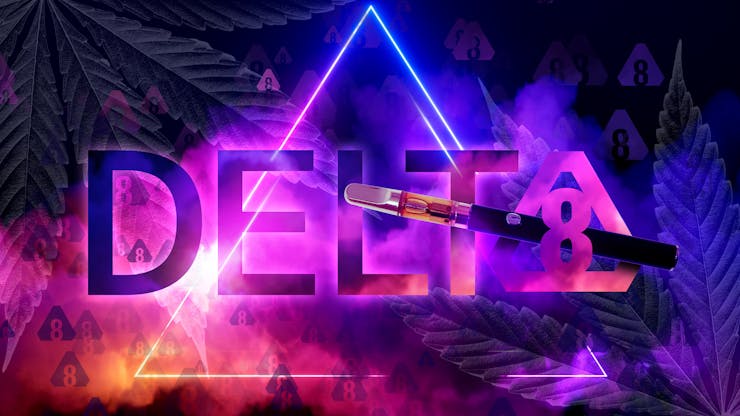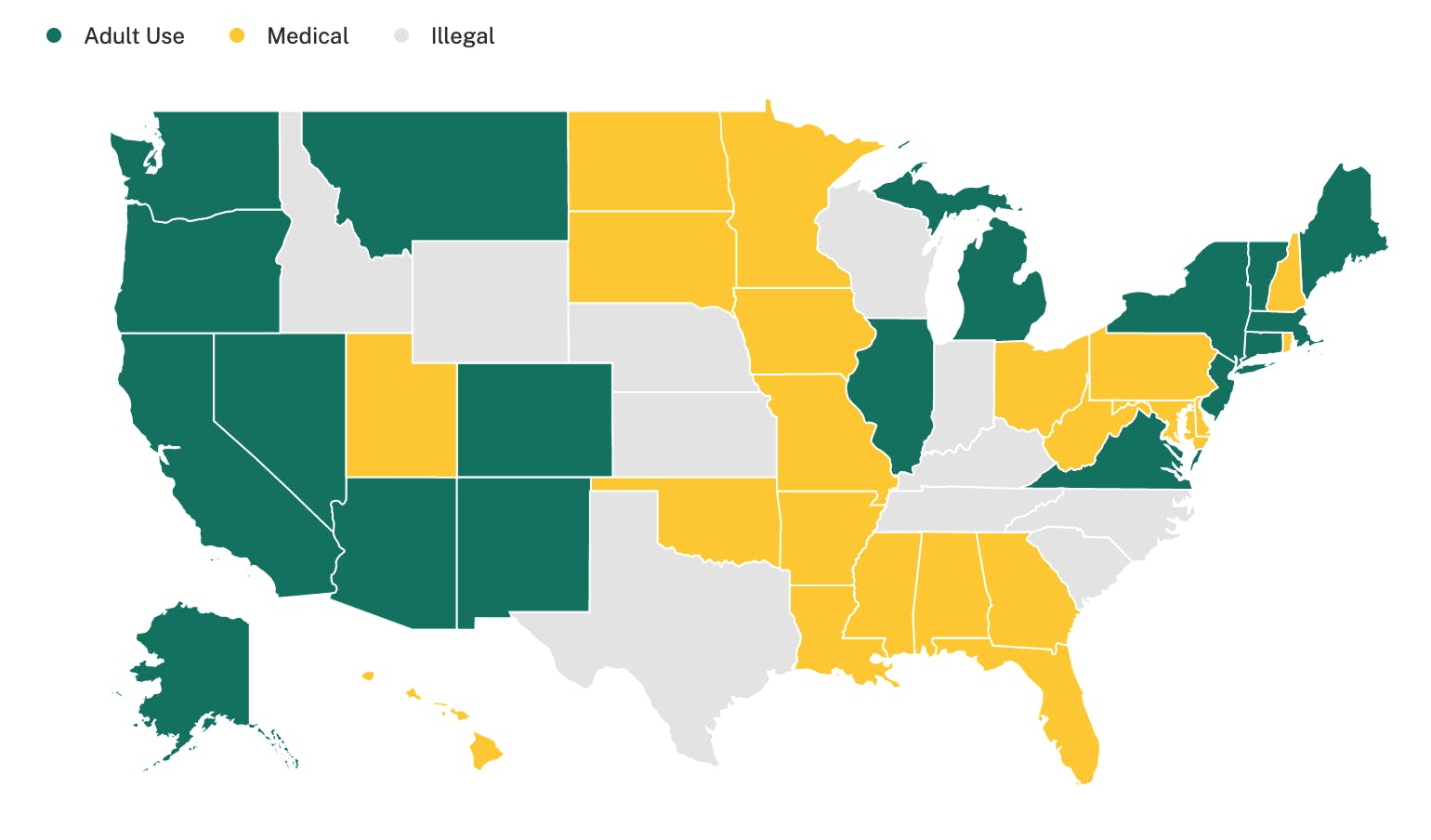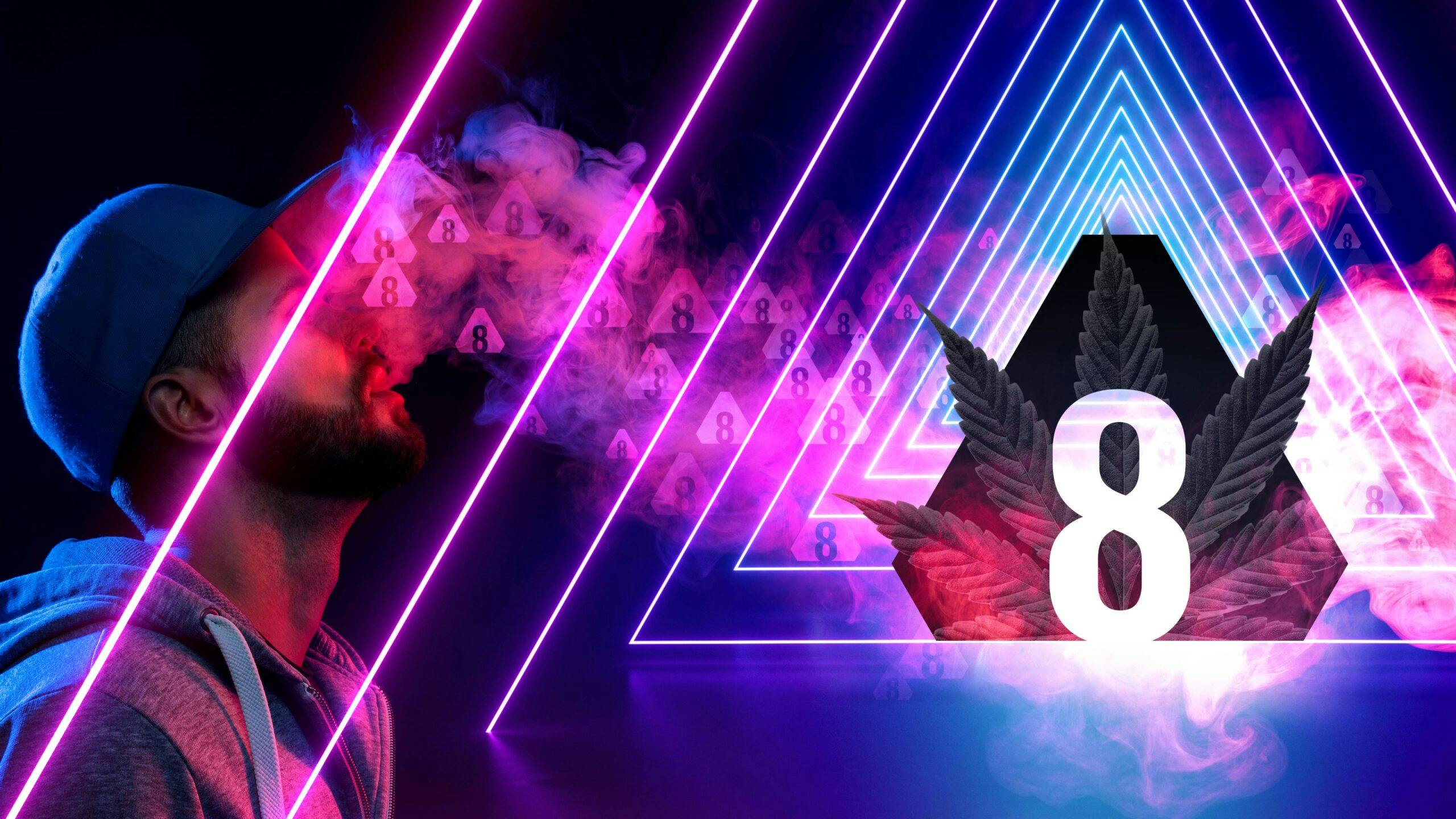Hey, Oregon…it’s time to stock up.
Starting this Friday, July 1, all Oregon businesses—including gas stations and grocery stores—will be prohibited from selling any and all “artificially derived cannabinoids.” That means not just heavy hitters like delta-8 and THC-O, but non-psychoactive compounds like cannabinol (CBN) as well.
Although a dozen states have moved to ban delta-8 and other hemp-derived cannabinoids that act similarly to THC, Oregon will be the first state to ban all artificially derived cannabinoids.
What does “artificially derived” mean? Good question.
According to Oregon’s own legal definition, the term refers to any substance created by changing the molecular structure of a compound derived from any cannabis plant, including hemp.
Delta-8 THC fits the bill, since it’s synthesized from CBD that gets extracted, typically, from hemp plants.
Under the new law, extracting naturally-occurring cannabinoids in the cannabis plant, however, remains legal, as long as it’s licensed by the state.
State officials argue the ban is necessary due to a lack of testing protocols to assure the safety of these hemp-derived cannabinoids. Manufacturers of the targeted products, however, see the rules as arbitrary and overreaching.
“We’ve been based in Oregon forever,” Gabe Parton Lee, general counsel for the prominent brand Wyld CBD, told Willamette Week. “But if this is the way the state of Oregon addresses cannabis policy going forward, why would we be interested in sticking around here when we could find any other state that has a much more progressive view?”
Why a full ban?
The Oregon Liquor and Cannabis Commission (OLCC) says that a lack of sufficient testing necessitated the ban.
“We don’t have any testing for any of the whole universe of chemical reagents that you could use to synthetically turn one cannabinoid into something else, or for any of the byproducts of that reaction,” Steven Crowley, the OLCC’s hemp and processing compliance specialist, told The Oregonian.
Shop highly rated dispensaries near you
Showing you dispensaries nearOLCC officials did not respond to multiple requests for comment for this story.
The FDA reported that 104 people experienced “adverse events” after consuming delta-8 products last year. A little over half of them required medical attention. Two-thirds of these “adverse events” involved edibles.
What falls under the Oregon ban?
The ban in Oregon applies to all hemp-derived cannabinoids, including delta-8, delta-10, and THC-O (also known as THC acetate). It also includes non-psychoactive cannabinoids like CBN, which has shown some success as a sleep aid.
Regulators have made one short-term exception to their ban: Edible CBN products can be sold up through July 2023 without OLCC approval.
That should provide at least some brief relief to businesses like Wyld, whose Elderberry CBN gummy is a huge seller.
“It’s 20%-30% of our revenue depending on the state,” Parton Lee told Willamette Week.

The OLCC has offered an additional—albeit notably flimsy—concession to manufacturers as well: Beginning in July 2023, the department will permit licensed marijuana dispensaries to sell hemp-derived edible products, as long as they receive GRAS approval (“Generally recognized as safe”) from the Food and Drug Administration (FDA).
Currently, however, the FDA has only approved one hemp-derived product: Epidiolex, which doctors can prescribe to treat seizures.
But that concession only applies to edibles. Hemp-derived vape carts? Oregon can kiss those goodbye for good.
The rule comes despite a federal ruling this May that determined that the 2018 US Farm Bill permits and legally protects the manufacture of hemp-derived cannabinoids. That ruling, however, does not prohibit states from setting their own laws.
Will other states pass similar bans?
Oregon’s ban on lab-made cannabinoids has fueled speculation as to whether other states will follow suit.
An OLCC spokesperson confirmed to The Oregonianthat other states are in fact considering similar bans. Unfortunately, the department did not respond to our requests for clarification.
In the meantime, 20 states have banned or restricted the production, sale, and possession of psychoactive cannabinoids like delta-8. Those state are:
| Alaska | Michigan |
| Arizona | Mississippi |
| Arkansas | Montana |
| California | New York |
| Colorado | Nevada |
| Connecticut | North Dakota |
| Delaware | Rhode Island |
| Idaho | Utah |
| Iowa | Vermont |
| Kentucky | Virginia |
| Washington |
Be sure to check your state’s laws to ensure you are obtaining and possessing your cannabis products legally.







